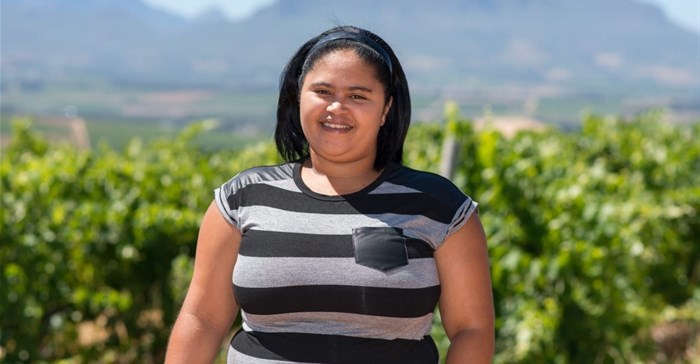Alvercia Juries (26), is graduating with a B Nursing degree from the University of the Western Cape, with her four-year studies having primarily been funded by Fairtrade brand Place in the Sun. She is the first person in her family and her community to attain a tertiary qualification and the first amongst those belonging to South Africa's network of Fairtrade-accredited farms.
Fairtrade is an ethical certification established to promote equality and sustainability in the farming sector. Globally, the system benefits more than 1,4 million farmers and workers in 74 countries. In South Africa, 72 wine farms are currently Fairtrade-accredited, with a premium of R600 per ton paid for their grapes. The money raised from the premiums goes towards social development projects that benefit farmworkers, their families and their communities. Although there are around 20 Fairtrade wine brands made and sold in South Africa, there are over 300 locally produced Fairtrade wine brands marketed globally.
Fairtrade premiums pay for education
Alvercia is the daughter of Devon Valley farm worker Arend Juries and his wife, Charmaine. She has become the role model for many, including her younger sister Chandré, who is now studying for a business diploma at Boland College. Juries senior is responsible for the health and safety of the workers on the farm, where some of the grapes are grown to produce the popular Place in the Sun wines. The balance of the grapes are grown on the farm next door which is also Fairtrade-accredited.
Without access to funding for their tuition, their studies were made possible by the Fairtrade premiums paid for the wine grapes grown on the two adjoining farms of the Carinus family. Cameron Goieman is another member of their Devon Valley community studying at Boland College, thanks to the premiums, and it is expected that others will follow.
Place in the Sun wines are made at the award-winning Zonnebloem cellars close by in Stellenbosch. They are sold in South Africa, Scandinavia, the UK and the US and many other parts of the world.
The Nietbegin Joint Body Trust, representing the 220 farm workers and their families in Devon Valley, administers the funds generated by the premiums. Since the launch of Place in the Sun wines in 2011, premiums have funded a range of projects. Apart from the tertiary tuition, textbooks, and transport for the students, premiums have paid for early-learning initiatives, school fees and uniforms at local schools of choice, sporting and other recreational activities, the creation of two vegetable gardens to improve nutrition and community eye testing.






































